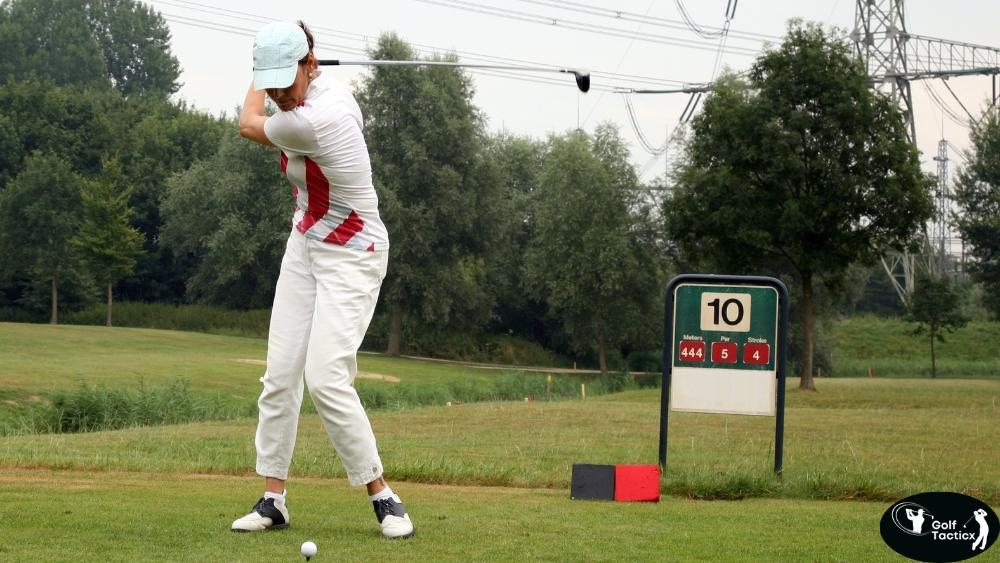Welcome back to another helpful post in your golf journey. Now that we’ve covered the importance of staying mentally focused during a round, it’s time to dive into one of the toughest parts of golf dealing with frustration and bad shots.
Let’s face it: bad shots happen to every golfer, from beginners to pros. The key to improvement isn’t just about how you hit the perfect shot; it’s about how you handle the moments when things don’t go as planned. Golf is a game of ups and downs, but how you react to those downs can make a huge difference in your overall performance and enjoyment of the game.
In this post, we’ll talk about how you can stay calm, bounce back quickly, and avoid letting frustration ruin your round. So, let’s get started!
Accept That Mistakes Are Part of Golf
First things first, it’s important to come to terms with the fact that bad shots are inevitable. No one plays a perfect round of golf. Even professional golfers hit bad shots, miss putts, and make mistakes. What sets the pros apart is their ability to accept those mistakes, learn from them, and move on.
By accepting that bad shots are part of the game, you take the pressure off yourself and allow yourself to play more freely. It’s not about perfection—it’s about recovery. Think of each bad shot as an opportunity to improve and strengthen your mental game.
Don’t Dwell on the Mistake
One of the biggest traps you can fall into is dwelling on a bad shot. You hit a poor drive, and suddenly, your mind is racing with thoughts like, “That was awful,” “Why can’t I ever get this right?” or “I’m terrible at this game.” These negative thoughts only create frustration, making it harder to stay focused on the next shot.
Instead of beating yourself up, take a deep breath and reset. Focus on the present moment, not the past. Golf is a game that’s all about the next shot. Think of it this way: if you’ve hit a bad shot, the best thing you can do is put it behind you and focus on making your next one count.
Use a Quick Mental Reset
When you hit a bad shot, give yourself a quick mental reset before your next swing. Here are a few techniques you can use:
- Take a deep breath: Breathing helps calm your mind and body, which is crucial when you feel frustrated. Take a slow, deep breath to regain composure.
- Positive self-talk: Instead of focusing on the bad shot, remind yourself of your strengths. For example, “I’ve had great drives before, and I’ll hit a good one again.”
- Count to 10: Counting to 10 slowly can help clear your mind and slow down your emotions, making it easier to refocus on your next shot.
These quick resets help break the cycle of frustration and refocus your energy on the present.
Change Your Perspective: Learn from the Bad Shot
Every bad shot offers a valuable lesson if you choose to learn from it. Rather than viewing it as a failure, see it as an opportunity to grow. Analyze the shot and ask yourself:
- What went wrong with the shot? (Did I grip the club too tightly? Was my stance off?)
- What can I do differently next time? (Adjust my posture, take a deeper breath, focus on my follow-through.)
By approaching a bad shot with a mindset of improvement, you turn frustration into motivation. This mindset will also help you maintain a more positive attitude throughout your round.
Keep the Bigger Picture in Mind
It’s easy to get caught up in a single bad shot, especially if it happens at a critical moment in your round. But remember, golf is a long game, and one bad shot doesn’t define your entire round. Keeping the bigger picture in mind will help you stay focused and avoid letting one mistake spiral into more mistakes.
Here’s a trick: after a bad shot, think about the hole as a whole, not just the mistake. What’s your strategy to recover? How can you stay calm and play the next shot better? If you focus on the bigger picture—your overall performance and the end result—you’ll be less likely to let one bad shot affect the rest of your round.
Use Visualization to Stay Positive
Visualization is a powerful technique that helps you stay positive and focused after a bad shot. If you’re feeling frustrated, take a moment to close your eyes and visualize yourself hitting the next shot perfectly. Imagine the ball flying straight down the fairway or sinking into the hole. Visualizing success not only boosts your confidence but also helps shift your mindset from frustration to positivity.
Try to create a mental image of your ideal outcome. For example, picture your next drive going straight and far, or imagine yourself sinking a challenging putt. The more vivid the image, the more your body will follow that positive mental picture.
Practice Gratitude for the Good Shots
While bad shots may feel like the end of the world in the moment, it’s important to also acknowledge the good ones. Whenever you hit a solid shot, take a moment to express gratitude and appreciate the effort you put into making it. This helps you maintain a balanced mindset and prevents you from focusing solely on the mistakes.
Practicing gratitude for your good shots reminds you that golf isn’t just about avoiding bad shots—it’s about appreciating the positive moments and building on them.
Focus on Your Process, Not the Result
A great way to prevent frustration is to shift your focus away from the outcome and focus on the process of hitting a good shot. Instead of thinking, “I need to hit a perfect drive,” concentrate on the steps that go into a good drive, like:
- Making sure you have the right grip.
- Sticking to your pre-shot routine.
- Staying relaxed and focused during the swing.
By focusing on the process rather than the result, you’ll reduce the pressure you place on yourself. Plus, this mindset shift helps you stay calm and composed, even when things don’t go as planned.
Develop a Routine for Dealing with Bad Shots
Having a consistent routine for dealing with bad shots is essential for keeping your cool. For example:
- Acknowledge the shot: Accept that the shot wasn’t ideal, but don’t dwell on it.
- Reset mentally: Use a breathing exercise or positive self-talk to calm your mind.
- Stay focused on the next shot: Move forward with a clear mind, and avoid thinking about the past shot.
This routine will help you handle frustration in a healthy way and get back on track quickly.
Conclusion
Dealing with frustration and bad shots is an essential skill for every golfer. The key is to accept mistakes, keep a positive mindset, and learn from each experience. Remember, golf is a long game, and the best golfers are those who can stay calm and composed when things go wrong.
Next time you face a bad shot, use the techniques we’ve discussed to reset your mind, stay focused, and keep going. Over time, you’ll find that your ability to handle frustration improves, and your performance will follow suit.
In the next post, we’ll talk about warm-up routines—what you should be doing before you even step foot on the course to get your body and mind ready for the game. Stay tuned!
















Leave a Reply